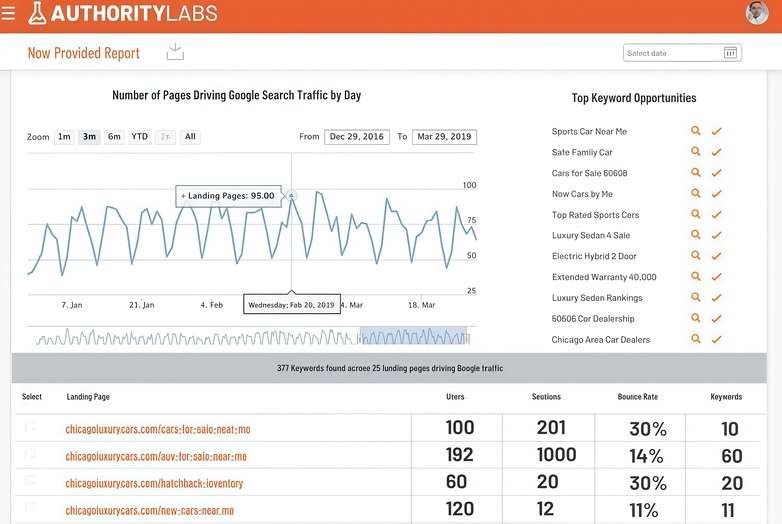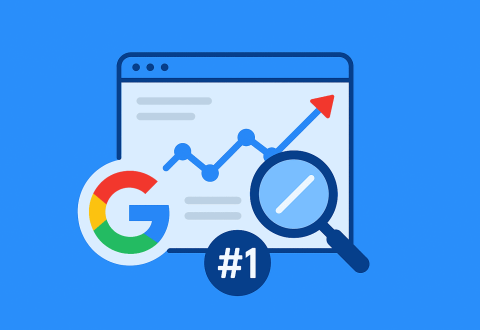The modern search landscape demands precision in google position tracking methodologies that extend far beyond traditional manual monitoring approaches. Strategic positioning analytics have evolved into sophisticated intelligence systems where accurate search position tool deployment determines competitive advantage in digital markets. Contemporary rank tracker platforms provide enterprise-grade data infrastructure enabling organizations to monitor search visibility across massive keyword portfolios with institutional-level precision. This comprehensive analysis examines 15 leading tracking solutions, evaluating their technical capabilities, market positioning, and strategic value proposition for professional SEO operations.
- Google Position Tracking Fundamentals
- Free Google Position Tracking Tools
- Premium Google Position Tracking Platforms
- Enterprise-Level Position Tracking Solutions
- Specialized Position Tracking Tools
- Technical Implementation and Best Practices
- Comprehensive Tool Comparison and Pricing
- Rush Analytics Competitive Advantages
- Implementation Strategy and Getting Started
Understanding Google Position Tracking Fundamentals
Advanced SERP position monitoring requires sophisticated analytical frameworks that account for algorithmic complexity and personalization variables inherent in modern search systems. The challenge of organic keyword tracking lies in navigating Google’s dynamic ranking algorithms while maintaining data accuracy across multiple geographic markets and device types. Professional tracking methodologies must eliminate personalization bias while providing actionable intelligence for strategic decision-making.
Contemporary search engine rankings fluctuate based on over 200 documented ranking factors, creating a complex optimization environment where traditional tracking approaches prove inadequate. The personalization phenomenon means that manual ranking checks often reflect individualized search experiences rather than market-wide positioning reality. This discrepancy necessitates enterprise-grade tracking solutions that simulate neutral search environments and provide unbiased ranking intelligence.
Why SERP Personalization Matters
Google’s algorithmic personalization creates unique search experiences for individual users, making traditional ranking verification methodologies fundamentally unreliable. When conducting manual keyword searches, Google’s systems factor browsing history, geographic location, device preferences, and previous site interactions. This Google SERP tracker complexity means businesses often observe inflated ranking positions that don’t reflect actual market performance.Professional tracking platforms eliminate personalization variables through sophisticated proxy networks and neutral IP rotation systems. These technologies simulate genuine user searches while removing historical bias factors. Think of this transition as moving from subjective market observation to objective performance measurement—the difference between anecdotal evidence and statistically significant data. Private browsing modes provide limited personalization reduction but cannot eliminate all algorithmic customization factors affecting search results.

Mobile vs Desktop Ranking Variations
The proliferation of mobile device usage has created substantial ranking fluctuations between desktop and mobile search environments. Google’s mobile-first indexing prioritization means mobile rankings frequently diverge from desktop performance metrics, yet many organizations continue optimizing primarily for desktop experiences. This strategic misalignment resembles investing in yesterday’s market conditions while ignoring current trading realities.
Advanced tracking platforms monitor both mobile and desktop ranking performance simultaneously, revealing device-specific optimization opportunities and competitive vulnerabilities. These variations can be substantial—keywords achieving top-three desktop positions might rank significantly lower on mobile platforms, directly impacting traffic acquisition and conversion performance across different user segments.
Free Google Position Tracking Tools
Budget-conscious organizations and individual practitioners can leverage several robust free solutions to check google position online effectively. These free SEO rank checker alternatives provide essential ranking intelligence without requiring significant capital investment. While feature limitations exist regarding keyword volume and advanced analytics capabilities, these platforms offer substantial value for understanding baseline search performance and identifying optimization opportunities.
Google Search Console for Official Ranking Data
Google Search Console represents the authoritative source for official ranking data, providing direct access to Google’s internal ranking intelligence systems. This platform reveals actual keyword performance metrics including average positions, click-through rates, impression volumes, and query-specific analytics. Unlike third-party simulation tools, Search Console delivers authentic performance data derived from real user interactions and search behaviors.

Implementation requires domain verification and ownership confirmation, after which the platform begins accumulating historical performance data immediately. The Search Console API enables seamless integration with business intelligence systems and custom analytics dashboards. However, platform limitations include visibility restrictions to keywords where your domain already achieves search result appearances, limiting competitive intelligence gathering capabilities.
The Performance reporting module within Search Console provides granular filtering capabilities across multiple dimensions including geographic markets, device types, search categories, and temporal ranges. This official ranking data becomes invaluable for identifying seasonal keyword trends, algorithm impact assessment, and measuring optimization initiative effectiveness against actual search performance metrics.

Alternative Free Position Checkers
Beyond Google’s official platform, several specialized tools offer free ranking verification with bulk keyword uploadfunctionality. FatRank provides rapid position checking across multiple keywords simultaneously, while SERPRobotdelivers location-specific ranking intelligence across diverse geographic markets. Rush Analytics offers a compelling free tier with up to 30 keyword checks, providing enterprise-grade accuracy typically reserved for premium platforms.

These alternative solutions excel in scenarios requiring immediate ranking verification for specific keyword sets. FatRank supports checking up to 100 keywords per query session, making it ideal for campaign performance spot-checking and competitive analysis initiatives. SERPRobot includes SERP feature detection capabilities, revealing whether target keywords trigger featured snippets, local pack results, or enhanced search result types.
The accuracy variance among free tools requires strategic selection based on specific use case requirements. Most platforms implement usage limitations to maintain service quality and prevent abuse. These tools serve as excellent supplements to Google Search Console, filling coverage gaps and providing competitive insights unavailable through official Google channels.
Premium Google Position Tracking Platforms
Professional SEO operations require sophisticated keyword ranking checker solutions delivering comprehensive SEO rank monitoring capabilities with enterprise-grade reliability. Premium tools offer advanced feature sets including competitor analysis, historical trend analytics, and sophisticated reporting mechanisms that free alternatives cannot match. These platforms transform raw ranking data into strategic intelligence systems enabling data-driven optimization decisions.
Rush Analytics: Comprehensive Enterprise Solution
Rush Analytics has established itself as a leading keyword ranking checker platform offering exceptional value through its comprehensive feature ecosystem and competitive pricing structure. The platform excels in keyword difficulty analysis and competitor keyword positions tracking, providing holistic search landscape intelligence across 60,000+ global locations with device-specific performance breakdowns.

The platform’s strategic advantage lies in its integrated analytics ecosystem where position tracking seamlessly connects with technical SEO auditing, backlink analysis, and content optimization workflows. This integration creates unified SEO intelligence systems where ranking changes can be analyzed alongside their potential causes. Rush Analytics provides advanced SERP feature tracking, revealing opportunities to capture featured snippets, knowledge panels, and local pack results.
Rush Analytics delivers exceptional competitive intelligence through its ability to track up to 10 competitors simultaneously across shared keyword portfolios. The platform’s unique features include real-time ranking updates, automated competitive analysis, and sophisticated tag-based keyword segmentation enabling precise campaign tracking and ROI measurement. API integration capabilities facilitate seamless data flow into existing business intelligence systems and marketing automation platforms.
Semrush Position Tracking Features
Semrush operates as a comprehensive SEO platform with robust position tracking capabilities integrated across its broader digital marketing toolkit. The platform monitors rankings across 130+ countries with detailed device-specific analytics and historical trend analysis spanning multiple years. Semrush’s strength lies in its keyword research integration, enabling automatic discovery of ranking opportunities and competitive gaps.

Competitive analysis within Semrush reveals comprehensive keyword overlap analysis and competitive positioning intelligence across shared keyword sets. This intelligence enables strategic keyword prioritization and identifies content optimization opportunities. The platform’s forecasting capabilities help predict ranking improvement potential and resource allocation requirements for achieving specific position targets.
Ahrefs Rank Tracker Capabilities
Ahrefs combines position tracking with its industry-leading Site Explorer and backlink analysis integration, creating comprehensive SEO intelligence platforms. The rank tracker monitors keywords across 170+ countries with extensive historical data repositories spanning several years. This longitudinal perspective enables seasonal trend identification and algorithm impact pattern analysis.

Ahrefs excels in competitive analysis through simultaneous tracking of up to 10 competitors across shared keyword portfolios. The platform’s unique features include ranking difficulty scoring that predicts optimization complexity for specific keywords. This predictive capability helps prioritize SEO investments on keywords with optimal success probability and resource efficiency.
AccuRanker for Real-Time Monitoring
AccuRanker specializes in real-time rank tracking with industry-leading update frequency and measurement precision. The platform updates rankings multiple times daily, providing near-instantaneous feedback on optimization changes and campaign performance. This SERP monitoring velocity makes AccuRanker particularly valuable for agencies managing multiple client portfolios simultaneously.

The platform’s enterprise features include comprehensive white-label reporting, extensive API access, and advanced automation capabilities. AccuRanker handles over 100,000 keywords per account efficiently, making it suitable for large-scale SEO operations. Detailed SERP screenshots provide visual verification of ranking positions and SERP feature presence.
Enterprise-Level Position Tracking Solutions
Large organizations with complex SEO requirements demand enterprise-level tracking solutions that scale beyond traditional platform limitations. These systems handle massive keyword portfolios, provide advanced team collaboration features, and integrate with existing business intelligence infrastructure. AuthorityLabs, BrightEdge, and similar enterprise platforms cater to organizations where SEO data feeds into broader digital transformation strategies.
Rush Analytics Enterprise Capabilities
Rush Analytics provides enterprise-grade position tracking through its advanced infrastructure supporting unlimited keyword tracking across 60,000+ global locations with flexible update frequency options. The platform handles massive keyword portfolios efficiently while maintaining cost effectiveness through intelligent resource allocation and automated optimization workflows.
Enterprise features include comprehensive white-label reporting capabilities enabling agencies to deliver branded client reports with customized analysis sections and branded visual elements. API integration functionality allows seamless data flow into existing client dashboards and business intelligence systems. The platform supports advanced team collaboration through role-based access controls and project segmentation capabilities.
Rush Analytics distinguishes itself through sophisticated tag-based keyword organization systems enabling enterprise teams to segment massive keyword portfolios by campaign, product line, geographic region, or business unit. This organizational framework supports complex SEO strategies across multiple business divisions while maintaining centralized reporting and analysis capabilities.

AuthorityLabs Professional Features
AuthorityLabs delivers enterprise-grade position tracking with extensive white-label reports and comprehensive API integration capabilities. The platform supports unlimited keyword tracking across 50+ countries with hourly update options for critical keyword monitoring. This flexibility enables enterprises to monitor high-priority terms with increased frequency while maintaining cost efficiency for broader keyword portfolios.
White-label reporting features enable agencies to deliver completely branded client reports without revealing underlying tracking technology or platform dependencies. Custom report templates include client branding elements, color schemes, and personalized analysis sections. API integration enables seamless data flow into existing client dashboards and business intelligence systems.

BrightEdge and Conductor Platforms
BrightEdge and Conductor represent premium enterprise SEO platforms, integrating position tracking with content optimization, technical SEO auditing, and performance forecasting capabilities. These platforms serve Fortune 500 companies with sophisticated SEO requirements extending beyond traditional ranking monitoring into comprehensive digital marketing optimization.
BrightEdge provides predictive SEO analytics, forecasting traffic and revenue impact of ranking improvements through machine learning algorithms. The platform analyzes historical performance patterns to predict future SEO outcomes and ROI projections. This forecasting capability enables enterprise teams to model investment returns for SEO initiatives and allocate resources strategically.

Scaling Position Tracking for Large Organizations
Bulk keyword tracking at enterprise scale requires sophisticated infrastructure and automation capabilities supporting 50,000+ keyword monitoring across multiple domains, geographic regions, and business units. This scale demands platforms with robust data centers, redundant systems, and enterprise-grade support infrastructure.
Successful enterprise implementation involves establishing keyword governance protocols, defining ownership responsibilities, and creating automated reporting workflows. API integration becomes critical for feeding SEO data into existing business intelligence systems and creating unified marketing performance dashboards.
Specialized Position Tracking Tools
Niche SEO requirements often demand specialized tracking solutions excelling in specific use cases beyond general-purpose platform capabilities. SERPWatcher, Mangools, and SE Ranking cater to unique tracking requirements including local SEO optimization, SERP feature monitoring, and specific geographic market analysis. These platforms fill strategic gaps that general-purpose solutions might overlook.
Local SEO Position Tracking
Local rank tracking requires sophisticated geolocation targeting capabilities simulating searches from specific cities, neighborhoods, or individual postal codes. Local businesses need comprehensive understanding of Google My Business listing performance alongside organic search results across target markets.
Professional local tracking tools monitor local pack results, organic rankings, and map pack positions simultaneously, providing comprehensive visibility across multiple local search result formats. Multi-location tracking enables businesses with multiple locations to monitor performance across all target markets through unified dashboard interfaces.
Advanced local tracking includes competitor analysis for local search results, helping businesses understand competitive landscapes in each target market. This intelligence guides local SEO strategies and identifies markets with greatest improvement opportunities and competitive vulnerabilities.
SERP Feature Tracking Capabilities
Modern search results include diverse SERP features beyond traditional organic listings—featured snippets, image carousels, video results, and knowledge panels significantly impact click-through rates and search visibility. Specialized tracking tools monitor these Universal Search elements alongside traditional ranking positions.
Featured snippet optimization has become critical SEO strategy as position zero results capture substantial search traffic volumes. Tracking tools monitoring snippet opportunities help identify content optimization targets and measure success in capturing these valuable positions.
Understanding which keywords trigger specific SERP features enables strategic content optimization decisions. Keywords frequently displaying featured snippets benefit from FAQ-style content formatting, while video-heavy SERPs suggest multimedia content optimization opportunities.
Technical Implementation and Best Practices
Successful position tracking implementation requires comprehensive understanding of API integration options, establishing rank tracking automation workflows, and following technical SEO best practices. Professional implementation ensures data accuracy, minimizes tracking costs, and creates scalable monitoring systems supporting organizational growth.
API Integration for Automated Tracking
API integration enables sophisticated automated tracking workflows feeding ranking data into custom dashboards, business intelligence systems, and marketing automation platforms. Enterprise tracking tools provide robust APIs supporting real-time data access and bulk data export capabilities.
Looker Studio integration creates dynamic SEO dashboards combining ranking data with traffic analytics, conversion metrics, and business KPIs. This integration transforms raw ranking data into actionable business intelligence supporting strategic decision-making processes.
BigQuery integration enables advanced statistical analysis, allowing SEO teams to perform sophisticated analysis on ranking trends, correlation studies between rankings and business outcomes, and predictive modeling for SEO performance forecasting.
Rush Analytics Implementation Excellence
Rush Analytics provides comprehensive API documentation and integration support, enabling seamless implementation into existing analytics workflows. The platform’s API supports real-time data access, automated report generation, and custom dashboard creation through flexible endpoint configurations.
Implementation teams benefit from Rush Analytics’ extensive documentation, code examples, and technical support resources. The platform’s API architecture supports high-volume data requests while maintaining response speed and reliability for enterprise applications.
Ensuring Data Accuracy and Reliability
Data accuracy in position tracking depends on sophisticated web scraping methodologies and robust proxy networks simulating authentic user searches. Professional tracking tools employ distributed proxy networks spanning multiple countries and ISPs ensuring ranking data reflects genuine user experiences.
Methodology validation involves comparing tracking tool results with manual verification searches and cross-referencing data across multiple platforms. Establishing baseline accuracy measurements helps identify tracking irregularities requiring investigation and resolution.
Quality tracking tools provide complete transparency regarding methodologies, update frequencies, and data sources. This transparency enables informed tool selection and helps explain ranking discrepancies when they occur across different tracking platforms.
Free 7 days access to all tools. No credit card required!
Try for free
Comprehensive Tool Comparison and Pricing
Selecting optimal position tracking solutions requires systematic analysis of feature comparison matrices, understanding pricing structures, and calculating ROI considerations for specific organizational requirements. The tracking tool landscape spans from free basic checkers to enterprise platforms requiring substantial monthly investments.
| Tool | Keywords | Countries | Mobile/Desktop | API Access | Starting Price | Update Frequency |
| Rush Analytics | Unlimited | 60,000+ | ✓ | All plans | $24/month | Hourly options |
| Google Search Console | Unlimited* | Worldwide | ✓ | Free API | Free | Daily |
| Semrush | 500-40,000 | 130+ | ✓ | Premium only | $119/month | Daily |
| Ahrefs | 750-7,500 | 170+ | ✓ | All plans | $99/month | Daily |
| AccuRanker | 1,000-100,000+ | 40+ | ✓ | All plans | $109/month | Multiple daily |
| AuthorityLabs | Unlimited | 50+ | ✓ | All plans | $99/month | Hourly options |
*Limited to keywords where site already ranks
Feature comparison analysis reveals tool selection depends heavily on specific organizational requirements and scale. Small businesses might find Google Search Console combined with Rush Analytics’ free tier sufficient, while agencies require multi-client management capabilities and comprehensive white-label reporting. Enterprise organizations need unlimited scalability, advanced integrations, and sophisticated team collaboration features.
Pricing structure evaluation should include hidden costs such as additional user licenses, API access fees, and keyword limit overage charges. Rush Analytics offers transparent pricing with all features included, while some platforms charge premium prices for essential capabilities like API access and competitor tracking.
ROI considerations extend beyond direct tool costs to include time savings, data accuracy improvements, and strategic insights driving revenue growth. Rush Analytics provides exceptional value through its comprehensive feature set, competitive pricing, and enterprise-grade capabilities typically reserved for significantly more expensive platforms.
Rush Analytics Competitive Advantages
Rush Analytics delivers superior value through several key competitive advantages that position it as the optimal choice for professional SEO operations. The platform provides enterprise-grade capabilities at accessible price points, making advanced position tracking technology available to organizations of all sizes.
Key strategic advantages include:
- Comprehensive global coverage: 60,000+ location options versus typical 50-200 locations
- Flexible update frequency: Hourly updates for critical keywords with daily options for broader portfolios
- Transparent pricing: All features included with no hidden costs for API access or competitor tracking
- Advanced SERP features: Complete tracking of featured snippets, local packs, and Universal Search elements
- Enterprise scalability: Unlimited keyword tracking with sophisticated tag-based organization
- API excellence: Comprehensive documentation with responsive technical support
The platform’s tag-based keyword organization system enables sophisticated campaign management and ROI tracking across complex organizational structures. This capability particularly benefits agencies managing multiple client portfolios and enterprises with diverse product lines requiring segmented tracking approaches.
Implementation Strategy and Getting Started
Professional organizations benefit from structured implementation approaches that maximize platform capabilities while minimizing deployment complexity. Rush Analytics provides comprehensive onboarding support including detailed documentation, video tutorials, and responsive technical assistance.
The implementation process involves:
- Strategic planning: Define keyword portfolios, competitor sets, and reporting requirements
- Account configuration: Set up tracking parameters, geographic targets, and update frequencies
- Integration development: Configure API connections and automated reporting workflows
- Team training: Establish user access controls and analytical workflow procedures
- Performance optimization: Monitor accuracy, adjust parameters, and scale operations
Organizations considering advanced position tracking capabilities can evaluate Rush Analytics through its comprehensive free trial offering access to all platform features. This evaluation approach enables organizations to assess platform capabilities against specific requirements before committing to subscription plans.
Conclusion
Strategic google position monitor implementation combines multiple analytical methodologies and technological platforms to create comprehensive SEO intelligence systems. The best practices outlined in this analysis—from tool selection criteria to implementation workflows—provide the foundation for SEO success in increasingly competitive digital markets.
Professional position tracking transcends simple ranking monitoring to become strategic intelligence gathering that drives optimization decisions, competitive analysis, and resource allocation strategies. Organizations implementing sophisticated tracking systems gain substantial competitive advantages through enhanced market visibility and data-driven optimization capabilities.
Rush Analytics emerges as the optimal solution for organizations seeking enterprise-grade capabilities at accessible price points. The platform’s comprehensive feature set, global coverage, and transparent pricing structure provide exceptional value while supporting organizations from startup to enterprise scale. Consider evaluating Rush Analytics’ capabilities through their free trial to experience the platform’s strategic advantages firsthand and transform your SEO intelligence capabilities.






